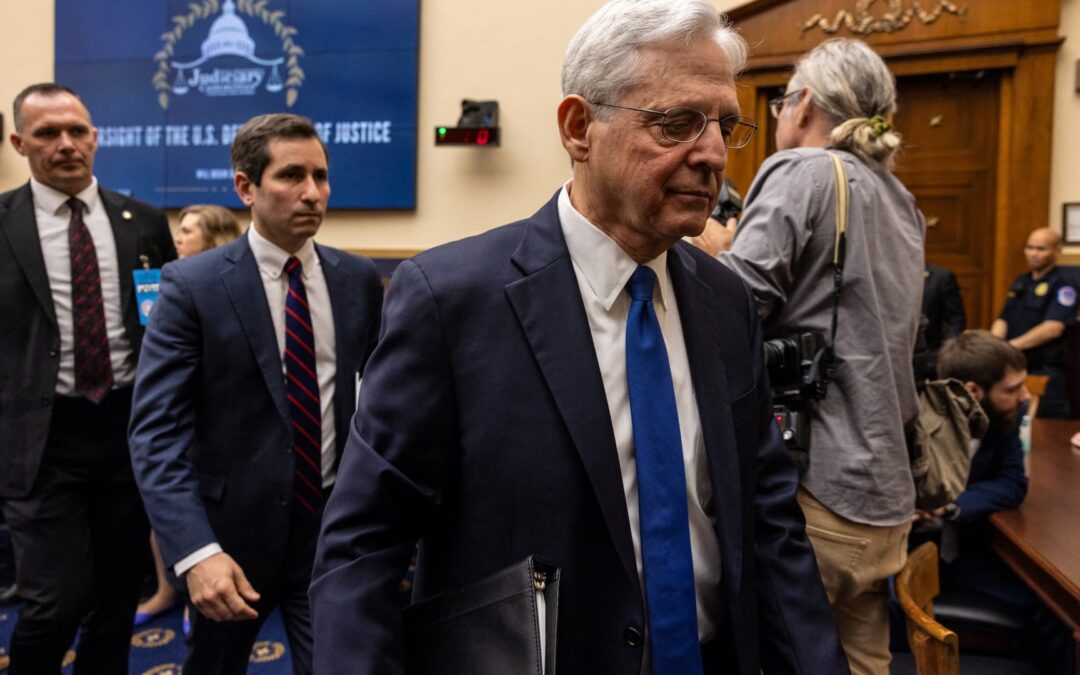U.S. Attorney General Merrick Garland departs for a recess during a House Judiciary Committee hearing entitled “Oversight of the U.S. Department of Justice”, in Washington, D.C., U.S., June 4, 2024.
Anna Rose Layden | Reuters
WASHINGTON — The Justice Department confirmed Friday, as expected, that Attorney General Merrick Garland will not face charges after House Republicans voted to hold him in contempt of Congress for declining to provide audiotapes of President Joe Biden that are protected by executive privilege.
“As you know, the President asserted executive privilege and directed the Attorney General not to release materials subpoenaed by the House Committees on the Judiciary and Oversight and Accountability (Committees) related to the investigation conducted by Special Counsel Robert K. Hur,” Assistant Attorney General Carlos Felipe Uriarte wrote in a letter to House Speaker Mike Johnson, R-La., on Friday.
“The longstanding position of the Department is that we will not prosecute an official for contempt of Congress for declining to provide subpoenaed information subject to a presidential assertion of executive privilege, as explained in our May 16, 2024, letter to the Committees,” Uriarte wrote. “Across administrations of both political parties, we have consistently adhered to the position that ‘the contempt of Congress statute was not intended to apply and could no constitutionally be applied to an Executive Branch official who asserts the President’s claim of executive privilege.”
The letter noted that then-Attorney General William Barr and Secretary of Commerce Wilbur Ross were not prosecuted after the House voted to hold them in contempt in 2019. In 2022, the Justice Department also declined to prosecute former Trump White House officials Mark Meadows and Dan Scavino, who did not cooperate with the Jan. 6 committee’s subpoenas.
Congress already has a transcript of Biden’s interview with Hur, who investigated the president’s handling of classified documents. Hur declined to prosecute Biden, writing in his report that one reason not to go forward with the case was that Biden would be sympathetic to a jury because he could portray himself as an “elderly man with a poor memory.” Hur also said the evidence his team gathered “does not establish Mr. Biden’s guilt beyond a reasonable doubt.”
Garland wrote last month that giving the recordings to Congress “would raise an unacceptable risk of undermining the Department’s ability to conduct similar high-profile criminal investigations — in particular, investigations where the voluntary cooperation of White House officials is exceedingly important.” He told reporters that releasing audiotapes “would harm our ability in the future to successfully pursue sensitive investigations.”
Garland pushed back at Republican attacks on the judicial system and DOJ, calling them “unprecedented” and “unfounded” during a hearing before the House Judiciary Committee this month. The Justice Department, he said, “will not back down from defending democracy.
Johnson’s office did not immediately respond to a request for comment.









